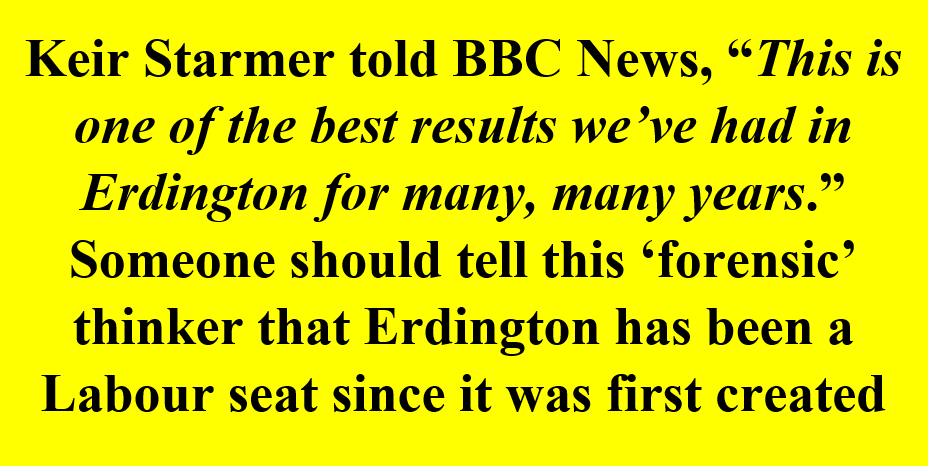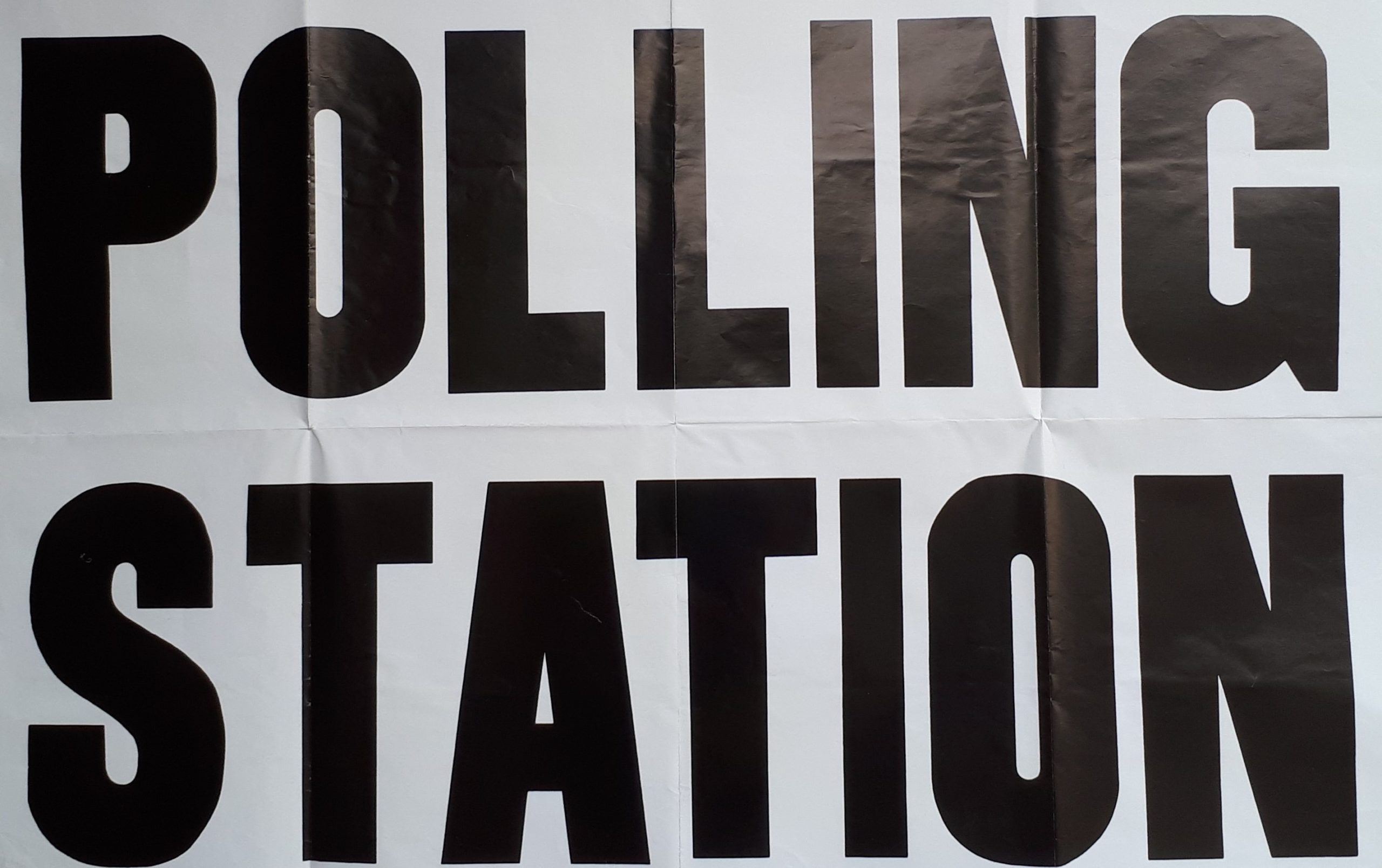Labour has hung onto the parliamentary seat of Birmingham Erdington, but it was by no means an unqualified triumph. The headline message coming out of this by-election is that there is little enthusiasm for the policies of either of the two main party leaders.
By-elections invariably produce a low turnout, voters believing that it is general elections that count more, and that is even more true with the Tories sitting on a big majority in Westminster. Nevertheless, the turnout in Erdington was exceptionally low.
Leaving aside Southend West, which was uncontested by the main opposition parties, there have been six other by-elections since the general election of December 2019. The turnout at these has ranged from 52% (Chesham and Amersham) to 33% (Old Bexley and Sidcup), with an average of 42%. Erdington has hit a new low, with a turnout of only 27%, just under half what it was in 2019.
Putting the percentage vote in perspective
It puts the share of the votes into some kind of perspective. The Labour vote will have benefitted from the fact that the candidate, Paulette Hamilton, who now becomes the city’s first black MP, had worked as an NHS nurse for over 25 years. Labour’s vote of 9,413 did increase in percentage terms by 5%, but in numbers it was down by over 8,000. Likewise, although the Tory vote increased percentage-wise, their actual vote more than halved.
Given that workers in Britain are currently undergoing the greatest attack on their living standards in decades – with more to come less than a month away – and given the scandals, sleaze and corruption surrounding the Johnson government, one would have thought that voters would have been queuing up to give Johnson a bloody nose. As it was, 63,000 electors didn’t show up, and there is the distinct impression that most of those who did, held their noses while they voted.
It sometimes seems that Keir Starmer is living in a parallel universe. He told BBC News, “This is one of the best results we’ve had in Erdington for many, many years.” Someone should tell this ‘forensic’ thinker that Erdington has been a Labour seat since it was first created nearly fifty years ago, with majorities over 12,000 and as many as 58% of the votes, even in recent times.

Rather than painfully creeping ahead in the national polls, Labour ought to be twenty points ahead. It is still a moot point whether or not Labour can win a general election under Keir Starmer and with the policies he is advancing. He and the new general secretary, David Evans, have done huge damage to the Labour Party.
Starmer has abandoned the pledges that got him elected
Few active Labour members can recall in their lifetime a period of such low morale such as we have in the Party at present. Since Keir Starmer’s election as leader and his subsequent abandonment of the ten ‘pledges’ on which he fought the leadership election, thousands of good party members have been suspended or expelled and twenty times that number have simply walked away.
They have been repulsed by the increasing totalitarianism in the party and the crushing of free speech. Whereas it was once only forbidden to disagree with the leadership over the extent of anti-semitism in the party – that was the pretext for Jeremy Corbyn’s suspensions – it is also now impermissible to disagree with the Keir Starmer publicly on NATO or on foreign policy. Left Labour MPs are now carefully phrasing all their public speeches and closely monitoring their social media interactions, in case the snoops in Labour Party HQ see a new pretext for a suspension.
The Tory-lite policies of the Labour leadership are completely out of touch with public opinion and with the needs of the moment. Trade union members up and down the country are defending their wages and conditions against ‘fire and rehire’ tactics by employers. They are fighting out-sourcing and the trashing of their wages and conditions. They are fighting for decent rises in pay, to keep them within sight of rising costs.
Labour leadership champion a failing system
But rather than support the trade unions’ campaign for £15 an hour minimum wage – which, incidentally, is the policy agreed at Labour conference – Starmer and Shadow Exchequer Rachel Reeves are clinging tenaciously to a £10/hour national minimum wage, barely above the Tories’ own offering. While the Tories are ruthless in their drive to impoverish the population, the Labour leadership are posing as champions of capitalism, a system that is utterly failing.
Rather than support the public ownership of utilities like water, rail and energy – which polls have shown are electorally popular and which is also the policy of Labour conference – the leadership are expressly against it. The longer the cost-of-living crisis drags on, the more those around Starmer will be seen to be out of touch with ordinary working people and the more they will clash with the trade unions.
As an aside, some of those who have walked away from the party in recent months have called for the creation of a ‘new party’ of the left. Some of them had high hopes that TUSC would do well in the Erdington by-election. That particular balloon has been pricked in a derisory vote – just over 2% – showing yet again that wishing for something will not make it real.
Erdington has made one thing clear: it will be despite the Labour leadership and not because of it that Labour will make electoral headway. It will be because of a rejection of the Johnson government and not an attraction to Starmer’s policies that Labour will creep ahead. Erdington was only a by-election, but perhaps it is a foretaste of elections to come, with a miserably low turnout and a complete absence of any enthusiasm to vote. The revulsion felt towards Boris Johnson just about trumps the apathy felt towards Keir Starmer.



